Sustainability
Enequi is sprung from a vision of a more sustainable world – where energy storage and energy optimization form a cornerstone of the necessary energy transformation. We develope our products and services to contribute to a positive impact on the climate.
Enequi is sprung from a vision of a more sustainable world – where energy storage and energy optimization
There is no question that sustainability is one of the most important reasons that we go to work every day. The easiest way to get more people to join the sustainable energy movement is to make it profitable and uncomplicated. If it is profitable to be sustainable, more people will join the movement!
That is why we developed QuiPower.
The global goals
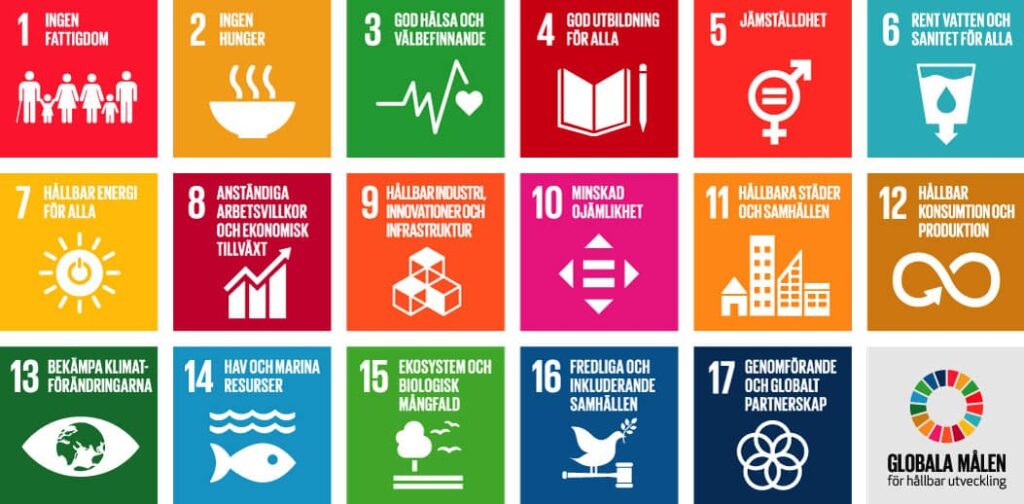
In 2015, U.N and world leaders agreed to 17 global goals. At Enequi we choose to focus our efforts in the areas where we believe we can make the most difference. This means that we actively work towards the following goals:
Affordable and clean energy
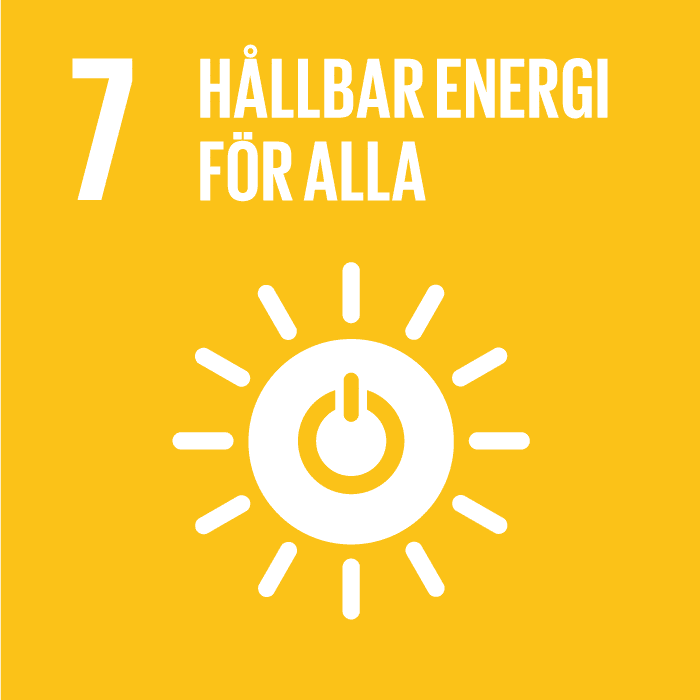
Goal 7 is about ensuring access to affordable, reliable, sustainable and modern energy for all. This is precisely what Enequi is all about and it is where our core competence lies. We develop intelligent systems for energy storage and energy control to optimize the usage of reneable energy for all property owners. Det skapar värden för individen, samhället och ett stabilt elnät i hela Europa.
Decent work and economic growth
Goal 8 is about promoting sustained, inclusive and sustainable economic growth, full and productive employment and decent work for all. We at Enequi work to ensure that our business partners run their business in a fair manner and that they accept our code of conduct. The same applies to our employees. We also work to contribute to breaking the connections that exist between economic growth and environmental destruction. Therefore, Enequi intends to deliver systems that contribute to profitability for both companies and end users and at the same time contribute to a better environment.
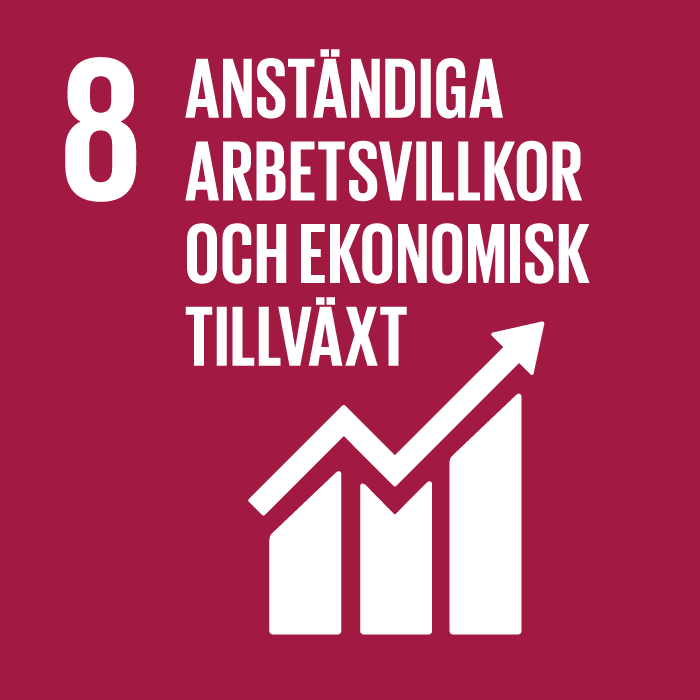
Industry, innovation and infrastructure
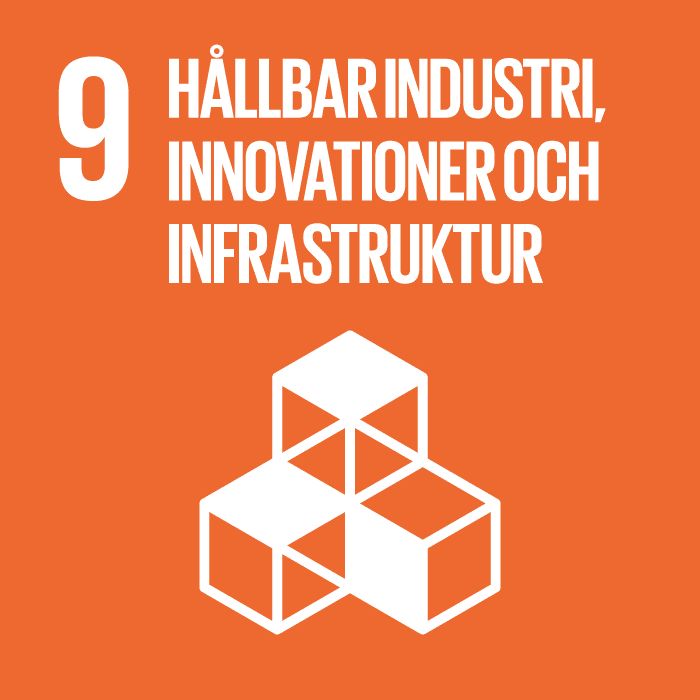
Goal 9 is about building resilient infrastructure, promote inclusive and sustainable industrialization and foster innovation. As part of 9.1, Enequi wants to participate in building out reliable, sustainable and resilient infrastructure of high quality. Through energy storage and energy control, we can contribute to more stable electricity grids within and across regional borders. We also work for an inclusive and sustainable industrialization (9.2) and by 2030 be part of equipping the infrastructure and adapting the industry to make them sustainable, with more efficient use of resources and more clean and environmentally friendly technologies and industrial processes (9.4), also where we see that energy control, energy storage and energy design will be important components.
Good health and well-being
Goal 3 is about ensuring healthy lives and promote well-being fot all at all ages. One of Enequi’s greatest focus areas is health, and we look after the mental and physical health of our employees. We work actively with wellness activities and initiatives to reduce welfare illnesses and help our employees live up to the WHO’s recommendations. Of course, we also support our employees who need help with tobacco cessation or other addictions. Mental health and well-being are also important and we conduct annual employee surveys and employee interviews in order to be able to act and support so that we can continue to have fun and feel good at work.
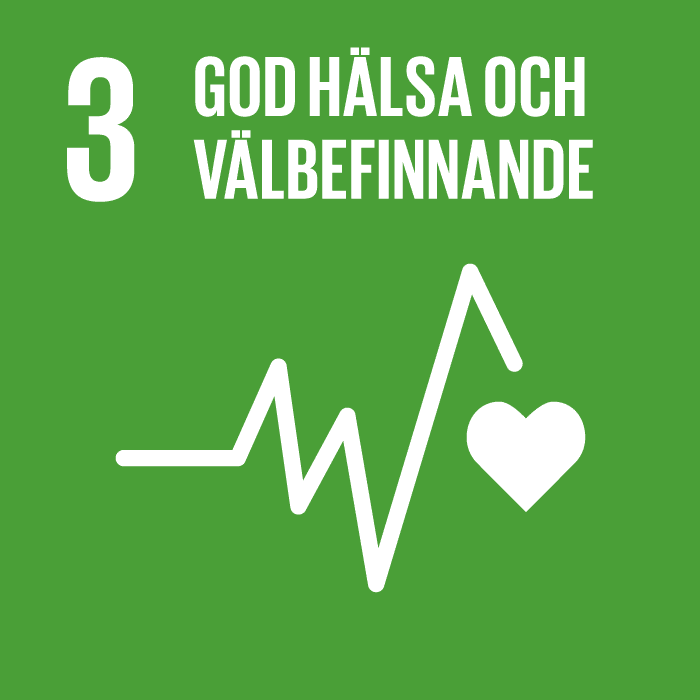
ESG
ESG stands for Environmental, Social och Governance.
ESG refers to three key factors when measuring the sustainability and ethical impact of an investment in a company or business. Most investors, who take on a social responsibility, analyze and check companies using ESG criteria for selection.
Read more about ESG
ESG is thus a collection of non-financial metrics that include ethical, sustainable and corporate governance areas or elements such as ensuring that systems are implemented to ensure accountability and to control and manage a company’s climate footprint.
Environmental
GHG (Green House Gas) protocall
The GHG protocol is an international definition for mapping emissions, setting forms and frameworks for reporting and focusing on the right emission factors. It is divided into 3 different areas.
You can read more about the different areas here
- Scope 1 – reports direct greenhouse gas emissions, i.e. what the business has direct control over, such as emissions from own vehicles and machinery, burning of coal, petrol and oil in factories that the business owns
- Scope 2 – reports indirect emissions from electricity such as consumption of electricity, district heating and district cooling
- Scope 3 – covers the emission sources in an organization’s upstream and downstream value chains where upstream can be material consumption, employee commuting, business travel, production of equipment and downstream can be processing, use and final disposal of products sold
According to the GHG protocol, companies must at least report Scope 1 and Scope 2, but can choose to report emissions from different parts of indirect emissions under Scope 3 depending on operations and ambitions.
Why do we measure our carbon dioxide emissions?
Enequi’s business model is based on our products and services helping property owners transition to clean and environmentally friendly energy. The better our products and services become from an environmental point of view – the more competitive we become.
- We help property owners make use of their renewable production (and reduce electricity purchases)
- We help property owners to optimize their energy use (and reduce electricity purchases)
- Property owners achieve climate neutrality when our products have lower carbon dioxide emissions
- We become a more attractive employer when we actively contribute to a lower carbon footprint
What does Enequi do?
According to the GHG protocol, companies must at least report Scope 1 and Scope 2, but can choose to report emissions from different parts of indirect emissions under Scope 3 depending on operations and ambitions.
- Enequi performs measurement of Scope 1
- Enequi performs measurement of Scope 2
- Enequi performs measurement of selected parts within Scope 3, where measurement figures can be produced in a meaningful way
- Enequi works actively with a roadmap for climate neutrality, we review our own climate impact to enable the development of a clear roadmap and a realistic goal for when we can achieve climate neutrality.
- Life cycle analysis
A life cycle analysis (LCA) is an important tool for assessing environmental impact. LCA is used as part of various control systems in the environmental field, e.g. environmental management system and environmental labelling. With an LCA, you want to get an idea of the environmental impact, but also an idea of the resource flows that exist.
Enequi has carried out life cycle analysis of a QuiPower Hydride system with the help of a third party. The analysis shows that the kilograms of carbon dioxide equivalents that the system generates through the design, manufacture and transport of constituent parts are less than the corresponding saving of kilograms of carbon dioxide equivalents achieved through power peak creation. Which can be seen in the diagram below.
It is important to point out that the energy-saving functions achieved through the QuiPower platform are significantly more than just power peak creation. Power peak creation refers only to saved kilograms of carbon dioxide equivalents for the economical use of electricity.
By using QuiPower, further environmental benefits are also created which are difficult to demonstrate in exact calculations. For example:- Shaved power peaks among the properties means a more stable electricity grid at community level and an electricity use/electricity production that becomes easier to predict, which in turn can reduce fossil fuel emissions from, for example, reserve power plants.
- The QuiPower platform visualises, automates and enables energy optimization measures that property owners can use to reduce their energy consumption and thus contribute to both environmental benefits and financial benefits.
- Enequi always strives to reduce both the company’s and its customers’ environmental footprint and actively works with subcontractors to reduce the carbon footprint of construction and transportation, as well as to increase the climate benefit generated by using the QuiPower platform.
- The company car challenge and our car policy
At Enequi, we are committed to doing everything in our power to help with the transition to renewable energy and an electrified society. That is the great question for our generation. That’s why we’re obviously taking part in the Swedish Service car challenge!
The company car challenge is an initiative from Fossilfritt Sweden – an initiative created by the government before the climate meeting in Paris 2015. The challenge means that the companies that join must only buy and lease green cars – that is, electric cars, plug-in hybrids, hydrogen cars or biogas cars.
– Joining the Service Car Challenge was obvious to us. At Enequi, electrification and the transition to renewable energy are fundamental to our business concept and the reason we go to work every day. We are passionate about this issue and the decision to join the Company Car Challenge was the easiest we have made so far, says Mikael Lindgren, CFO at Enequi.
Learn more
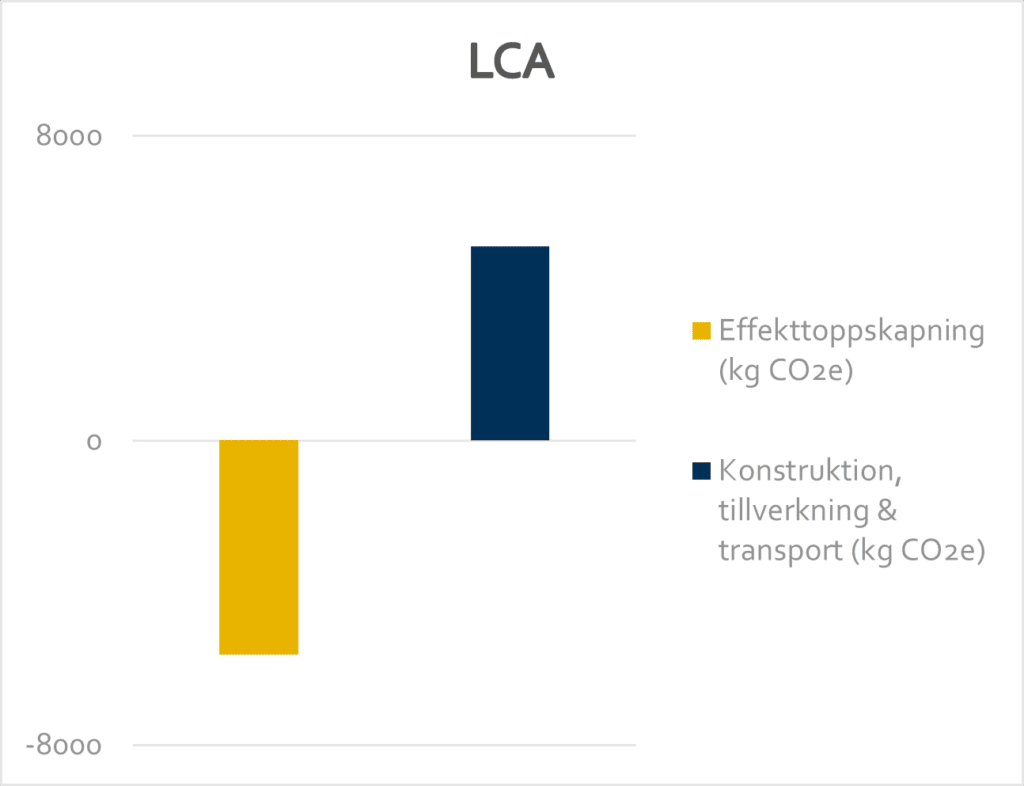
Socially
What does Enequi do?
- Enequi has implemented a Code of Conduct for all employees, which must be read, accepted and signed. Our goal is also for 100% of our key suppliers to sign this code of conduct or hold a corresponding code of conduct themselves.
- Audits and/or self-assessments are carried out on our key suppliers.
- We carry out an annual employee survey to map how Enequi is as an employer and how our employees perceive both the company and their immediate manager, as well as how the employees feel. Actions are taken based on outcomes.
- Health care
At Enequi, we work actively with wellness and have a wellness team that has monthly meetings and runs activities to activate our employees. The team consists of employees in our various offices who pay close attention to what initiatives would be suitable; is it climbing, paddling or a joint Friday jog? Of course, the health care work is also carried out to support increased well-being, both psychologically and physically, and reduce stress.
We understand that each employee bears their own responsibility and has their own prerequisites for a healthy everyday life. We want to share tools to facilitate continuous development, such as lectures or online tools.
Learn more
Governance
What does Enequi do?
- Enequi has implemented a whistleblower system where anyone can report irregularities, or suspected irregularities, in the company or its employees, including the company’s board.
- Enequi has defined sustainability responsibility within company management and the board.
- Enequi has defined the most essential sustainability issues and based on that set measurable goals. The selection of the most significant sustainability issues is based on analysis of where Enequi could make the greatest positive impact. A process is in place to follow up and measure outcomes.
- Enequi works to achieve a 40 percent representation of the underrepresented gender on the company board and company management.